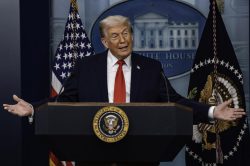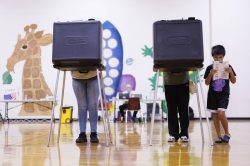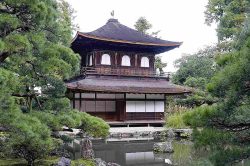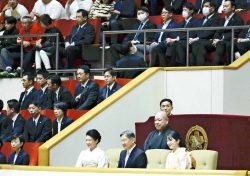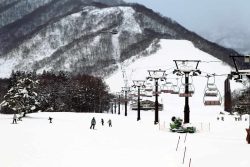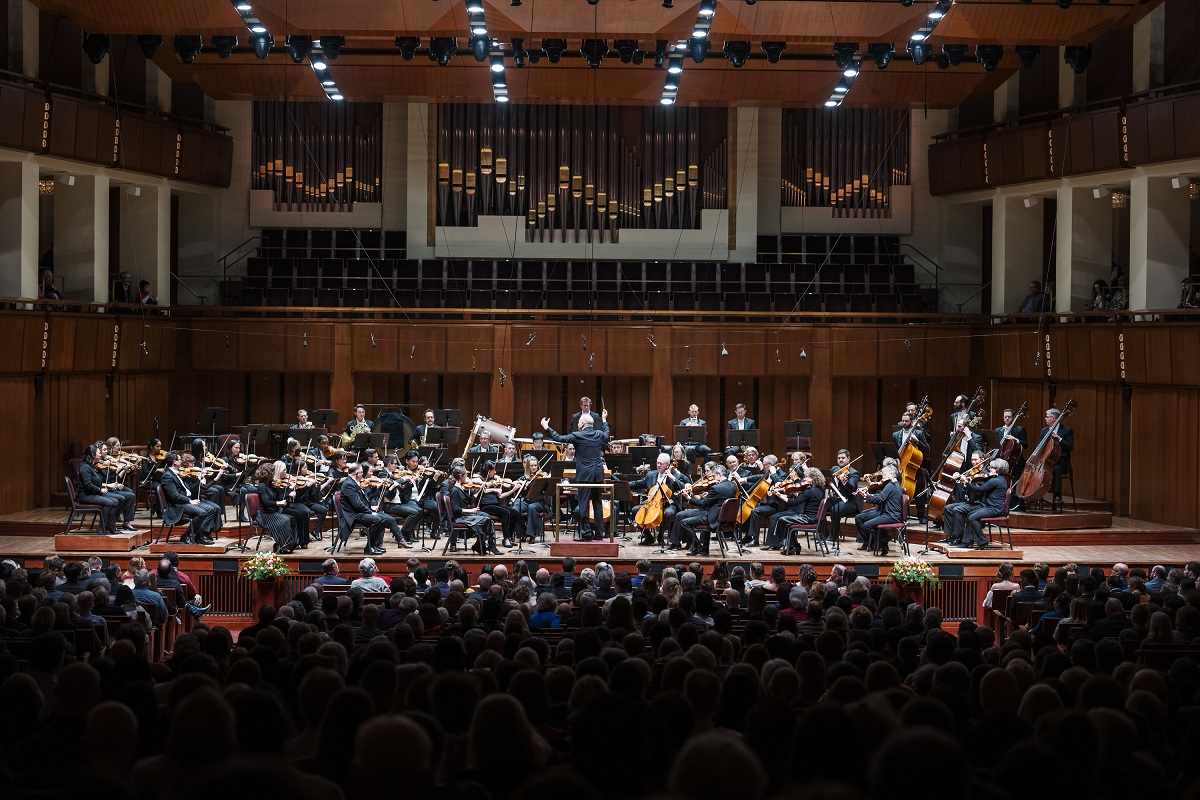
The National Symphony Orchestra performs at the Kennedy Center in Washington, D.C., in February.
12:40 JST, September 24, 2024
The union representing the musicians of the National Symphony Orchestra (the Metropolitan Washington, D.C., Federation of Musicians, Local 161-710, American Federation of Musicians) announced on Monday the unanimous outcome of a Friday vote to authorize a strike against the Kennedy Center over a stalled collective bargaining agreement.
“The union and the Kennedy Center have been in negotiations for a new collective bargaining agreement since May,” said a statement from the union, which was issued Monday morning, “but remain far apart on wages and other material issues.”
A strike could directly impact a busy opening week for the NSO, with three scheduled concerts featuring Sara Bareilles and Saturday’s season opening gala concert.
At the core of the dispute is what the union identifies as an unacceptable wage gap between NSO musicians and their peers in orchestras of similar size and stature, including the New York Philharmonic, Boston Symphony Orchestra, Chicago Symphony Orchestra and the Los Angeles Philharmonic.
“That pay disparity combined with the high cost of living in the D.C. area make it harder for the NSO to attract and retain talent commensurate with the reputation of the National Symphony Orchestra and the Kennedy Center itself as a premier performance venue,” the release said.
Last week, the New York Philharmonic ratified a new contract that gives its musicians a 30 percent increase in pay over three years (in increments of 15 percent, 7.5 percent and 7.5 percent). Interim leader Deborah Borda described it as “a restorative settlement that brings our musicians to the level of their peer orchestras.”
The Boston Symphony Orchestra adopted a similar “catch-up” agreement in 2023 after a three-year pause in wage increases prompted by the pandemic.
Musicians from the Philadelphia Orchestra last year negotiated a 15.8 percent increase in pay over three years (which includes increments of 6 percent, 4.5 percent and 4.5 percent).
In comparison, the NSO union proposed wage increases averaging 6.25 percent per year over the next four years, an increase schedule that the union said would achieve parity with the orchestra’s peers and account for the “substantial givebacks” – i.e. pay cuts and delayed increases – enacted during the pandemic. During the pandemic, NSO musicians also raised $130,000 of their own money to assist furloughed NSO staff until they secured jobs or were hired back.
The Kennedy Center’s proposal, meanwhile, suggests increases that average 3 percent annually over the next four years (in increments of 4 percent, 3 percent, 3 percent and 2 percent).
In a statement, the Kennedy Center described its proposal as “generous and fiscally responsible,” citing an increase in wages of 12 percent over a four-year contract, bringing the minimum NSO base salary to $178,840 (and the average for “most musicians” to $209,325). The center’s proposal also included “significantly expanded health care options at reduced costs for the musicians, the addition of paid parental leave, updates to audition and tenure processes, and funding of a third full-time librarian position requested by the musicians.”
“The musicians’ demand for a 25 percent wage increase is not financially viable,” the statement said. “While the Center’s current proposal calls for fair wage increases each year, the musicians appear intent to restore wages lost as a result of the pandemic,” when NSO musicians received 65 percent of their contractual salary during an 18-month closure.
“As our national center for the performing arts, the Kennedy Center should be a leader among arts institutions in fairly compensating its artists,” union president Ed Malaga said in a statement. “Instead, the Kennedy Center has made proposals that are far out of step with other orchestras throughout the country.”
“We’re proud to be part of the NSO,” a statement to The Post from NSO musicians said. “We’ve accomplished great things. But the bottom line is the Kennedy Center needs to recognize that in this contract. Many of us have moved from around the world to be part of an organization like the NSO. If the Kennedy Center refuses to pay its musicians like the world class artists they are, musicians around the world are going to know it, and they’re going to want to be part of an organization that does.”
“The Center remains hopeful that both parties can resume good-faith negotiations as soon as possible toward a fair contract that will enable the institution to shape its future in a way that is both responsibly and economically sustainable,” said the statement from the Kennedy Center, which added that patrons will be notified immediately if planned concerts are changed.
Union disputes are roiling orchestras across the country. Just this week, chorus members of the embattled San Francisco Symphony went on strike, an additional blow after the announcement of Director Esa-Pekka Salonen’s resignation at the end of the 2024-2025 season.
The last NSO strike against the Kennedy Center was in October 1978, with Music Director Mstislav Rostropovich appearing on the picket line.
Top Articles in News Services
-

Prudential Life Expected to Face Inspection over Fraud
-

South Korea Prosecutor Seeks Death Penalty for Ex-President Yoon over Martial Law (Update)
-

Trump Names Former Federal Reserve Governor Warsh as the Next Fed Chair, Replacing Powell
-

Suzuki Overtakes Nissan as Japan’s Third‑Largest Automaker in 2025
-

Japan’s Nikkei Stock Average Alls from Record as Tech Shares Retreat; Topix Rises (UPDATE 1)
JN ACCESS RANKING
-

Univ. in Japan, Tokyo-Based Startup to Develop Satellite for Disaster Prevention Measures, Bears
-

JAL, ANA Cancel Flights During 3-day Holiday Weekend due to Blizzard
-

Japan Institute to Use Domestic Commercial Optical Lattice Clock to Set Japan Standard Time
-

China Eyes Rare Earth Foothold in Malaysia to Maintain Dominance, Counter Japan, U.S.
-

Japan, Qatar Ministers Agree on Need for Stable Energy Supplies; Motegi, Qatari Prime Minister Al-Thani Affirm Commitment to Cooperation




